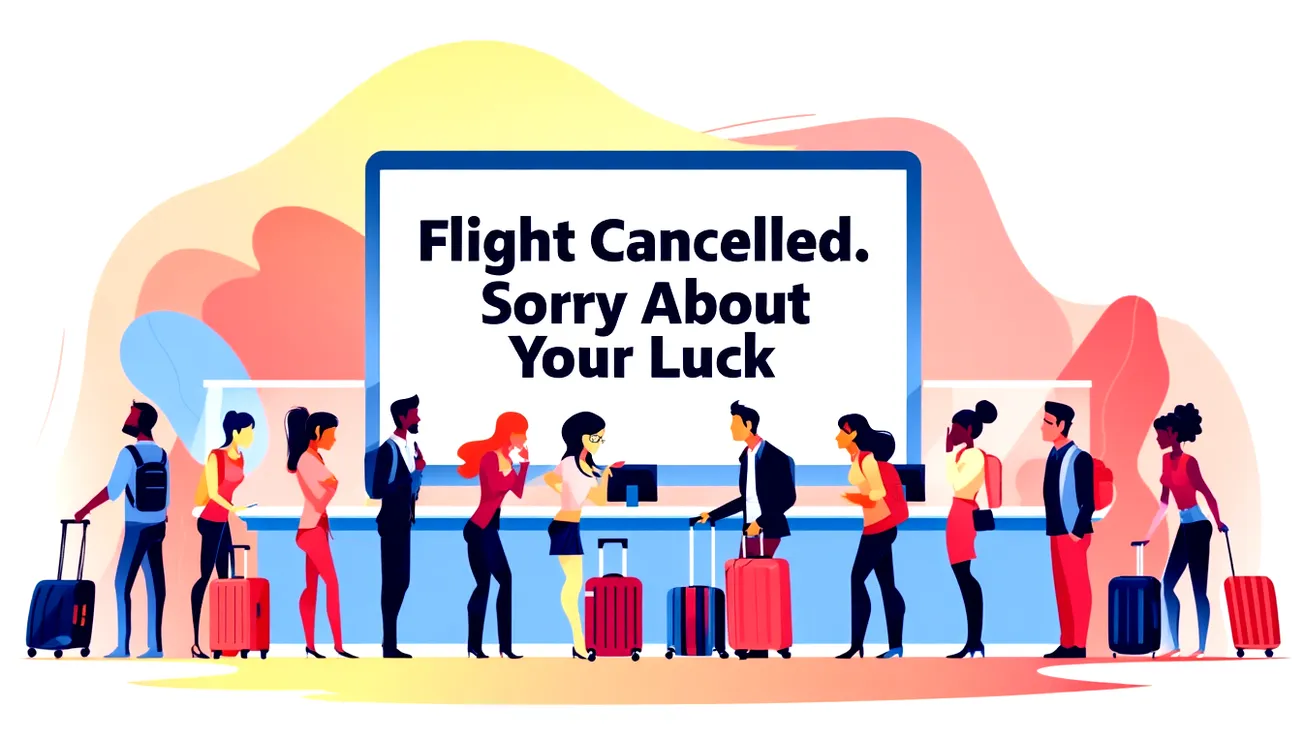(This is an updated article)
The Takeaway
- The FAA is cutting 10% of flights across the nation’s busiest airports — potentially affecting 200,000 seats a day.
- Airlines are offering waivers and refunds, but seniors should expect longer layovers, cancellations, and higher rebooking costs.
- If your flight is canceled, you’re entitled to a full cash refund — not a credit.
- Delta, United, and American are extending waiver options to most fare types, even Basic Economy.
- Travel insurance may not cover shutdown-related cancellations since it’s now considered a foreseen event.
It’s not like they didn’t tell us so
Not to sound like your mother, but when the Trump Administration’s latest budget fight forced a partial government shutdown, travel experts warned the fallout could hit the skies.
Now, it has.
The Federal Aviation Administration (FAA) is ordering airlines to reduce air traffic by roughly 10% in and out of dozens of major airports — a move it calls “capacity management” to handle air-traffic controller shortages.
“The U.S. aviation system has seen one of, if not the most, unprecedented moves by the FAA,” said Katy Nastro, a travel expert at Going.com, in a statement to Smart Senior Daily. “Airlines are proactively sending statements suggesting they’ll strive to mitigate disruptions as much as possible. But travelers should brace themselves — the chance of a major disruption just got a whole lot higher.”
The most likely airports to be affected
According to The New York Times, the FAA’s “Core 30” list includes the highest-traffic airports now under staffing triggers or capacity caps. These are the most likely to face cancellations or cascading delays that affect smaller connecting flights.
Major Metro Airports (Core 30):
Hartsfield-Jackson Atlanta • Boston Logan • Baltimore-Washington International • Charlotte Douglas • Ronald Reagan Washington National • Denver • Dallas-Fort Worth • Detroit Metro • Newark Liberty • Fort Lauderdale-Hollywood • Honolulu • Washington Dulles • Houston Intercontinental • New York JFK • Las Vegas Harry Reid • Los Angeles • New York LaGuardia • Orlando • Chicago Midway • Memphis • Miami • Minneapolis-St. Paul • Chicago O’Hare • Philadelphia • Phoenix Sky Harbor • San Diego • Seattle-Tacoma • San Francisco • Salt Lake City • Tampa
Midsize and Cargo Airports Also Under Discussion:
Anchorage • Cincinnati/Northern Kentucky • Dallas Love Field • Houston Hobby • Indianapolis • Louisville • Oakland • Ontario (CA) • Portland • Teterboro (NJ)
Together, these airports account for about 70% of all U.S. passenger traffic, meaning even travelers flying to smaller cities could feel the impact.
The Scope of the Disruption
Nastro says that between 8 and 120 flights could be canceled at a single airport in one day, totaling thousands of flights and more than 200,000 seats nationwide.
“Even if your flight isn’t departing from one of the 40 listed airports, you’re not completely safe,” she explained. “Almost 70% of all U.S. flights connect through one of these major hubs, so the ripple effects could be enormous.”
October’s TSA checkpoint numbers were up 4% year-over-year — but Going.com expects that to dip “as travelers opt to avoid travel chaos.”
What are the airlines doing?
- Airlines are scrambling to manage fallout before the weekend rush:
- Delta Air Lines has issued waivers allowing all fare types, even Basic Economy, to change flights at no cost.
Expect:
- Fewer direct flights and more reroutes
- Tighter layovers and packed rebooked flights
- Rising prices for last-minute fares
- United Airlines and American Airlines are expected to follow suit with similar flexibility, though exact policies vary.
- According to Nastro, “Regional routes and less-full flights are the first to go. If you’re flying to a smaller city or your plane isn’t packed, that route’s at higher risk for cancellation.”
What You’re Owed
If your flight disappears, you are legally entitled to a cash refund, not just a travel credit.
The U.S. Department of Transportation requires refunds even on non-refundable tickets if the airline cancels or significantly changes your itinerary.
“If a flight does get canceled,” Nastro said, “travelers are owed a full refund for the ticket, full stop. If they’re presented with a credit, they have the right to refuse and ask for a monetary refund.”
Refunds must be processed within 7 business days for credit card purchases and 20 calendar days for other forms of payment.
What Seniors Should Know
Older travelers — particularly those connecting to cruises, family reunions, or medical appointments — should prepare for possible disruptions:
- Check your email and airline app frequently. Flight changes can hit overnight.
- Study the seat map. Emptier flights are often the first to be cut.
- If offered only a credit, insist on cash. You’re entitled to a full refund.
- Be cautious with travel insurance. Most policies won’t cover shutdown-related cancellations unless purchased before Oct. 1.
- Use your credit card benefits. Many offer “common carrier” protection for canceled or delayed trips.
The Bottom Line
The FAA’s decision may look bureaucratic on paper, but for seniors planning winter travel or family visits, it’s personal.
Thousands of flights, hundreds of thousands of seats, and potentially millions of travelers will feel the ripple.
The good news: you have rights, and many airlines are offering flexibility.
The bad: the situation may change daily, and you’ll need to stay alert, patient, and ready to hit refund request before the chaos hits you.
Disclaimer: This article is for informational purposes only and does not constitute legal or travel advice. Policies may change without notice. For up-to-date refund and waiver details, visit your airline’s website or the U.S. Department of Transportation’s refunds page.










